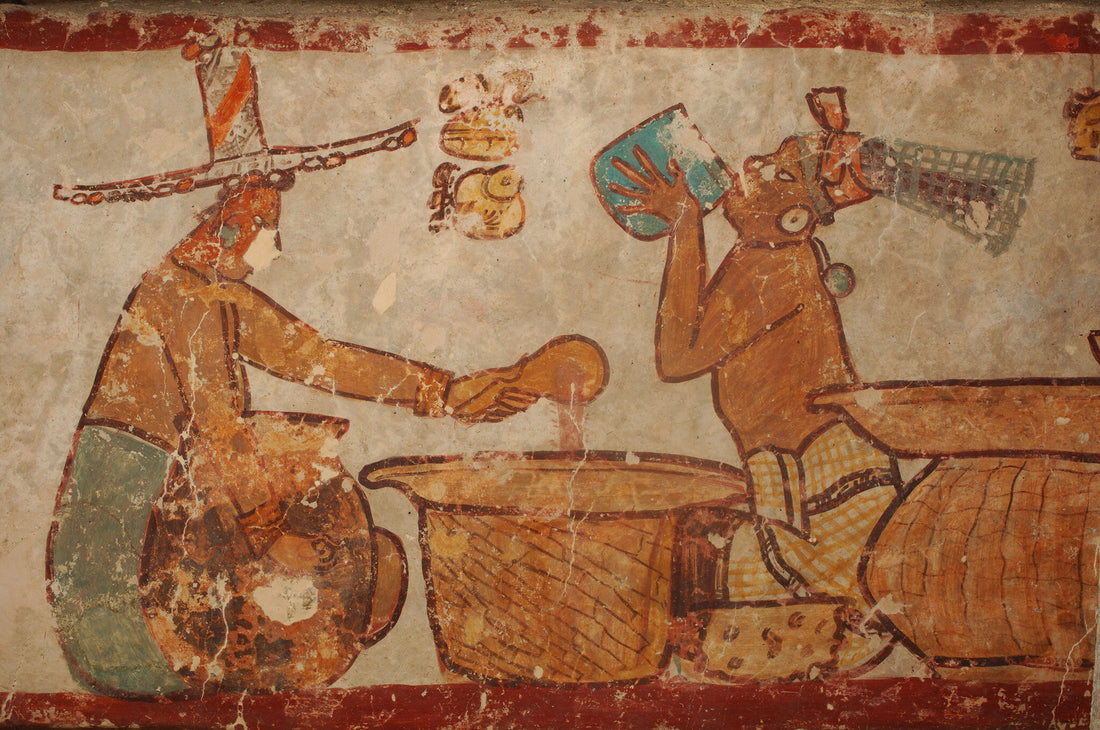Chocolate is more than just a dessert or sweet treat that we indulge in from time to time. It has roots that go back centuries, and it has a history that is as rich as its taste. From the Ancient Mayans, who revered chocolate as a precious commodity, to the modern-day chocolate giants of Europe, chocolate has played an important role in our world - politically, economically, and culturally. Let us, therefore, delve into the history of chocolate and uncover what makes our favourite sweet treat so valuable.
The Mayans, the ancient civilization that flourished in Central America and Mexico from 2000 B.C. to 900 A.D., revered chocolate. It was considered a delicacy and a valuable commodity, with cacao seeds being used as a form of currency. For the Mayans, chocolate had both spiritual and medicinal properties; they believed that consuming chocolate could increase their energy and strength. They also enjoyed drinking chocolate before battles to give them an edge. The Mayans used to prepare chocolate by roasting and grinding cacao beans. They then mixed it with water and spices such as chili peppers, cinnamon, and vanilla. The result was a bitter, frothy beverage, which was served cold.
The Aztecs, who extended the Mayan civilization, also held chocolate in high esteem. They called it "xocolatl," which means "bitter water." It was so important to Aztec culture that it was reserved for royalty and nobility. They even exchanged cacao beans as a form of payment. The Aztecs made their version of chocolate with roasted cacao beans, chili peppers, and cornmeal. They, too, drank it cold with no added sugar.
The Spanish conquest of the Americas in the 16th century was pivotal in introducing chocolate to Europe. The Europeans did not appreciate the taste of bitter chocolate, so they added sugar and milk to it to make it sweeter. The process of mixing sugar and milk to chocolate was known as "conching." Moreover, chocolate was also used to create an array of delicious desserts and pastries like truffles, brownies, and cakes.
Chocolate became an instant hit in Europe, and it paved the way for an entire industry to emerge. The Swiss, British, and French became the biggest producers of chocolate in the world. The British giant Cadbury & Fry was responsible for developing new recipes for chocolate and producing the first-ever chocolate bar in the world in the 1840s. Today, chocolate is one of the most valuable commodities globally, with the global chocolate industry worth US$145 billion.
Besides being a sweet indulgence, chocolate has also had a significant impact on the economies of many countries worldwide. In 2019, Cote d'Ivoire, a West African country, produced more than 2 million tons of cocoa beans, making them the leading producer of cocoa worldwide. The production of cocoa is responsible for the livelihood of millions of people in West Africa, Central and South America, and Asia. The growing and harvesting of cocoa beans is labor-intensive, and it provides a substantial source of income for farmers in these regions.
Chocolate has a history that spans thousands of years, and its value goes beyond its delicious taste. From being a precious commodity in ancient civilizations to becoming a booming industry worldwide, chocolate has come a long way. It has been the source of economic development in many countries and has become a part of global culture. Next time you indulge in a chocolate bar or a mouth-watering dessert, remember the journey it has taken to reach your plate. As chocolate lovers, we should appreciate the rich history of chocolate, the people behind its production, and the positive impact it has had on our world.

